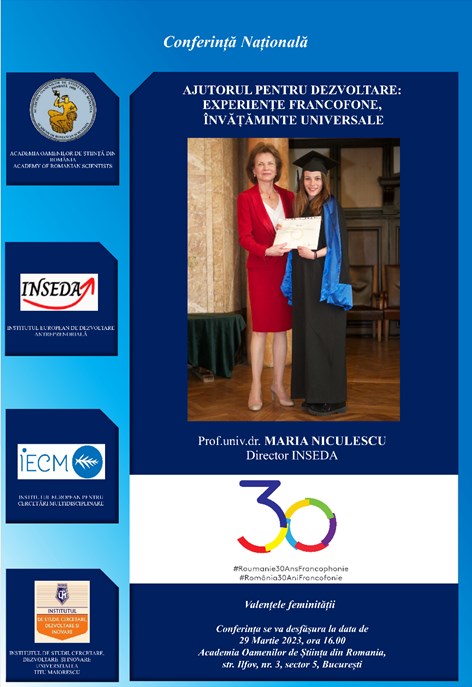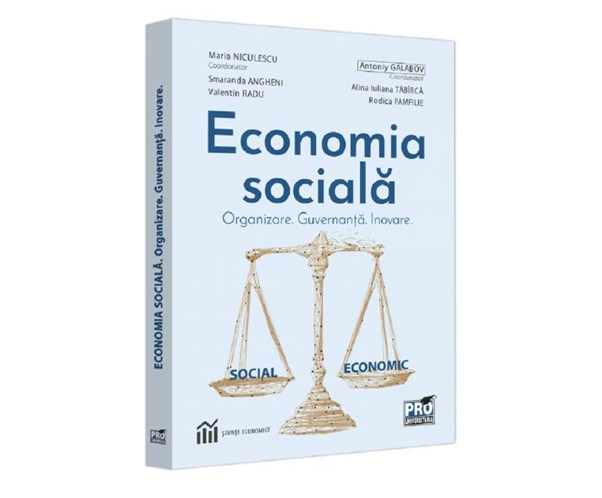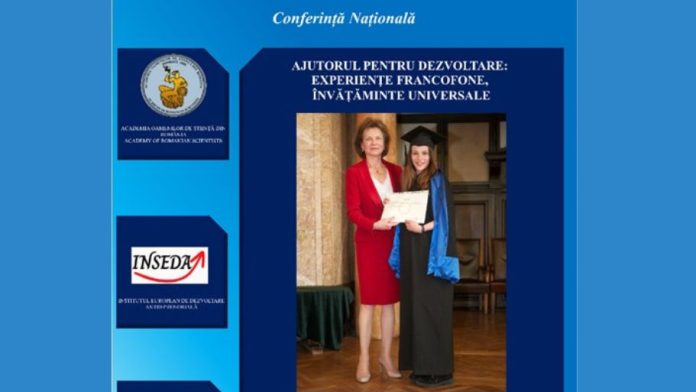The Academy of Romanian Scientists, in partnership with the European Institute for Entrepreneurial Development, the European Institute for Multidisciplinary Research and the Institute for Studies, Research, Development and Innovation of “Titu Maiorescu” University, organizes, within the framework of the program “Valențele feminidade”, on March 29, 2023, at the AOSR headquarters in str. Ilfov nr. 3, sector 5, Bucharest, conference held by Prof. Maria Niculescu, Director of INSEDA, entitled Aid for Development: Francophone Experiences, Universal Lessons.
Since the second half of the 20th century, development aid has been a priority in the cooperation policies of rich countries and international organisations. Before the fall of the Berlin Wall, aid flows were mainly directed to Africa, peaking in the period 1970-1990. After 1990, the range of recipients of such aid was widened to include former communist countries.
Aid has been accompanied by a number of ex-ante conditionalities, notably those granted by the Bretton Wood institutions as part of structural adjustment policies in Africa, or those linked to the transition to a market economy in Eastern Europe. The recurring question of the impact of this aid on the development of recipient countries and poverty reduction is a challenge for civil society and the scientific community. The answer is not easy, due to the complex realities of different beneficiary countries and the variety of conjunctural factors.
The answer given in this conference by Professor Maria Niculescu is based on almost twenty years of experience in bilateral and multilateral French-speaking cooperation, in positions of responsibility (Director of the Economic Cooperation Directorate at the Organisation Internationale de la Francophonie – OIF), Director of the National Institute for Economic Development (Franco-Romanian Institute – Bucharest), Director of the Ecole Supérieure de la Francophonie for Administration and Management (Sofia), diplomatic (OIF Representative to the European Union) or operational (professor, researcher and consultant to national and international bodies). Despite the diversity of actors, situations and outcomes, certain ‘lessons’ about the provision and especially the use of development aid are universal and deserve a critical but constructive look across space and time.

On the occasion of this conference the book “Social Economy: organization, governance, innovation” published at the end of 2022, under the coordination of Professors Maria Niculescu and Antoniy Galabov, by Pro Universitaria Publishing House, Bucharest.



